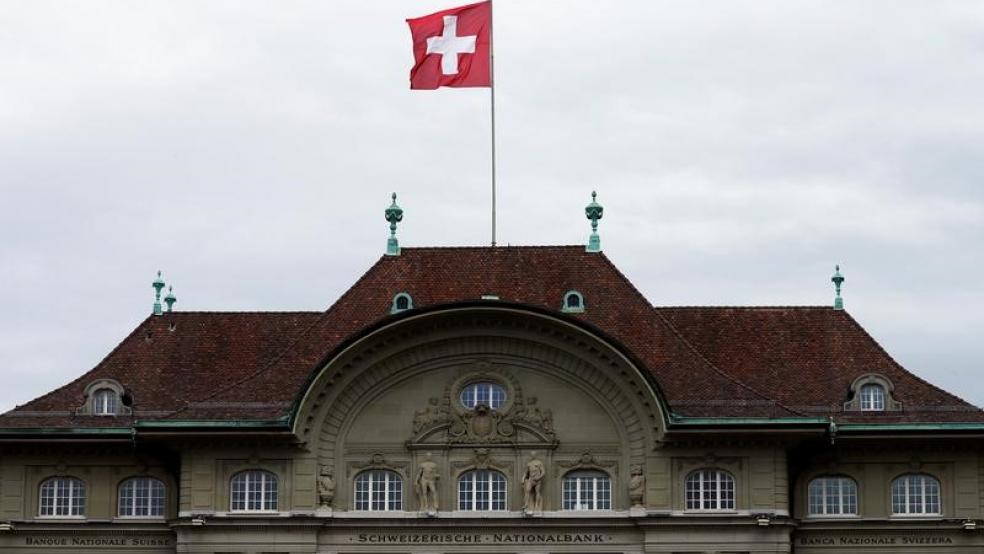ZURICH (Reuters) - Switzerland's central bank shrugged off criticism of its negative interest rates, sticking to its recipe of ultra-loose monetary policy and currency intervention on Thursday amid "considerable" economic uncertainty in Europe.
The negative rates have caused unease in Switzerland by acting as a charge on banks, while insurers and pension funds have been wrestling with low bond yields.
Negative rates and currency intervention have been the cornerstone of the SNB's strategy to weaken demand for the Swiss franc since it scrapped its cap against the euro in January 2015.
"We understand the difficult situation for the banks, for the insurers and the pension funds," Swiss National Bank Chairman Thomas Jordan told Swiss TV after the SNB left rates on hold. "But increasing the interest rate wouldn't help because it would lead to a rise in the franc."
He said the problem was globally low interest rates. "We must wait and see until this international situation improves."
The SNB kept its target range for three-month Libor at -1.25 to –0.25 percent, as expected by economists in a Reuters poll. It also kept its interest rate on cash deposits at -0.75 percent.
The franc, which the SNB called "still significantly overvalued", was little changed at around 1.0950 against the euro
. The SNB said it expected moderate growth in the global economy but significant risks remained, particularly following Britain's June vote to quit the European Union.The SNB said it expected the export-led Swiss economy to expand 1.5 percent in 2016, at the upper end of its June forecast of 1 percent to 1.5 percent, but growth "is likely to be more modest than in the first half, partly owing to a temporary weakening of growth in Europe".WAIT AND SEE "The negative interest rates have caused disastrous problems," Christoph Blocher, the strategy chief of the right-wing Swiss People's Party - the largest party in Switzerland's lower house of parliament - told newspaper Schweiz am Sonntag."Whoever saves is being dispossessed; that hits the pension funds, savers in general and a lot of ordinary people."Hans Peter Konrad, director of the Swiss pension fund association, said: "The negative interest rates, together with the already extremely low interest rates (for bonds), make it even more difficult for pension funds to achieve the necessary returns they need to fulfil their promises." The SNB was waiting to see how the franc exchange rate develops and what the European Central Bank does with its stimulus package before changing its own policy, analysts said."The SNB will remain in 'wait and see' mode," said Arnaud Masset, market analyst at Swissquote Bank."However, the issues from Brexit are only now beginning to materialise both on the economic and political front and may turn up the heat on the Swiss franc in the coming months."Britain's vote to leave the EU "has caused considerable uncertainty and makes an assessment of the global economic outlook more difficult", the SNB said, adding it had revised downwards its growth expectations for the UK and the euro area. (Additional reporting by Joshua Franklin, Editing by Michael Shields and Alison Williams)



